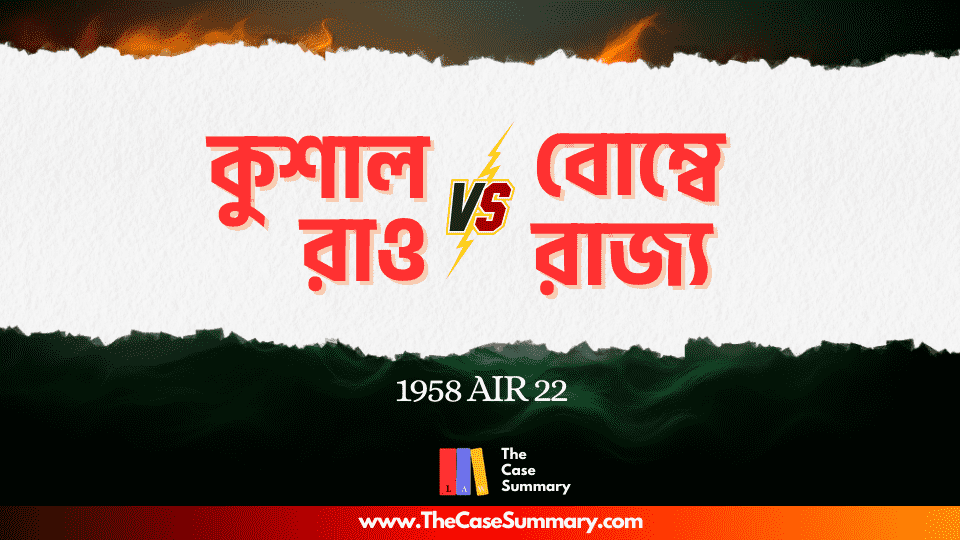Hafizuddin vs The State
Citation : [1990] 42 DLR 397
Jurisdiction : Bangladesh
Appellant : Hafizuddin (Defendant in the court of first instance)
Respondent : The State (Prosecutor in the court of first instance)
Facts :
On November 28, 1983, Abdul Hakim Sikder was found severely injured in a paddy field. He was allegedly beaten by his sons Kofiluddin, Hafizuddin (appellant), and Safaruddin. He later died in the hospital. A dying declaration was given by the deceased immediately before his death to the witnesses. He allegedly named his sons as the assailants to witnesses. A criminal case was initiated by Abdul Latif Sikder (PW 1), the victim’s relative, accusing the sons of murder. The accused were charged under Section 302/34 (murder with common intention) of the Penal Code.
The accused assailants Hafizuddin and Kofiluddin confessed to a Magistrate but later retracted their confession. 15 witnesses were examined, but none of them were eyewitnesses. Key witnesses (PW 1, PW 8) were relatives with potential biases.
The defense challenged the credibility of the dying declaration raising doubt about the victim’s physical state, the reliability of the witnesses and the voluntariness of the confessional statements, highlighting critical procedural lapses including the magistrate’s failure to provide proper legal warnings.
Issues :
1. Was the victim physically capable of making the declaration?
2. Was the deceased in a condition to recognize his assailants?
3. Did the witnesses accurately reproduce his statement?
4. Were the confessions voluntary and legally recorded (as per Section 164, CrPC)?
Decisions :
The trial court convicted Hafizuddin and Kofiluddin under Section 304 (culpable homicide not amounting to murder) of the Penal Code and sentenced them to 10 years of imprisonment.
But the High Court Division overturned the conviction, emphasizing insufficient evidence and procedural violations. The dying declaration of the deceased was deemed unreliable due to the lack of conclusive proof that the victim was in a physically and mentally fit state to identify his assailants or coherently name them. Additionally, there were inconsistencies in witness testimonies while reproducing the statement of the deceased before the Court. Furthermore, the confessional statements of the accused recorded under Section 164 of the CrPC were rendered inadmissible, as the Magistrate failed to follow mandatory safeguards such as issuing proper warnings, ensuring the absence of police influence, and allowing adequate reflection time.
Finally, the High Court Division ruled in favor of the appellant and acquitted him of the charges.
Relevant Laws :
- The Penal Code, 1860
- Section : 304
- The Evidence Act, 1872
- Section : 32(1)
- The Code of Criminal Procedure, 1898
- Section : 164
Note : The Case Summary is a platform by the law students, for the law students. We aim to summarize the facts and decisions of various important cases in both Bangla and English with utmost caution. However, this platform is in no way a replacement for going through the complete judgements by the law students and we discourage any learner from relying on case summaries alone. Thank you



